Albanese promotes ‘orderly change’ but faces an imminent reality check
Albanese seems extraordinarily relaxed for a PM under sustained policy pressures.
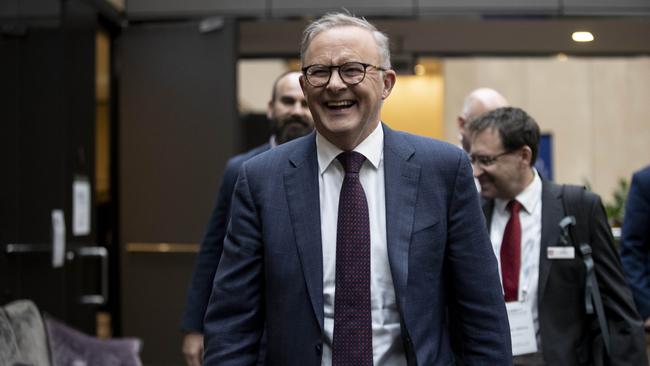
In a Q&A session with The Australian that ranged over reform, policies and governing philosophy the Prime Minister affirmed the way he intends to govern – he wants a consistent narrative, a culture of reform, his method is consultation and co-operation, he warns against being panicked and moving too quickly, and he says he will run a government based on “orderly” change. “We certainly are up for a big reform agenda but we’re up for one that’s orderly,” Albanese said during the 2022 Economic and Social Outlook Conference run this week by The Australian and the Melbourne Institute of Applied Economic and Social Research.
“I think one of the vulnerabilities in the past of Labor governments is we so passionately want to do things so quickly. Sometimes we lost some of the narrative.
“We don’t think we have a monopoly on all the good ideas. One of the reasons why I’m keen to talk at conferences like this is to engage. We’re in the ideas business, with universities and conferences like this and the Jobs and Skills Summit. Before the summit, paid parental leave was not going to be in our first budget. It got driven with such consistency there that it happened.”
Questioned about Labor’s moves to limit energy price rises and acting on both gas supply and price, Albanese said he would be seeking “a co-operative arrangement” with the companies. “I lead a government that consults, that tries to bring people together,” he said. “But that doesn’t mean we go for the lowest common denominator.
“My government is one that I want to be characterised by consultation, by engagement, wherever possible. But that shouldn’t be perceived as weakness. Collaboration can be a strength.”
Albanese tries to govern in a style reminiscent of Bob Hawke – trusting his ministers, not seeking to micromanage, imposing firm political parameters when needed and using cabinet to set the policy agenda. He puts emphasis on “tone”, convinced the public wants an improved atmosphere in national politics, although whenever Albanese resorts to Tory bashing, inevitable from time to time, he invites cynicism.
Jim Chalmers as Treasurer is conspicuous for being “upfront” with the public about the tough economic outlook and invokes his “national conversation” about future policy. In his speech to the conference Chalmers pledged to be an “evidence-based” Treasurer with data being the foundation for what he called “new thinking” and “deeper thinking”.
He announced the tax expenditures statement will now become a lot more transparent and in an interview with the author confirmed that the vast list of huge tax concessions, dominated by breaks for housing and superannuation, will be on the table for “the long road of budget repair” – while not making any specific commitment.
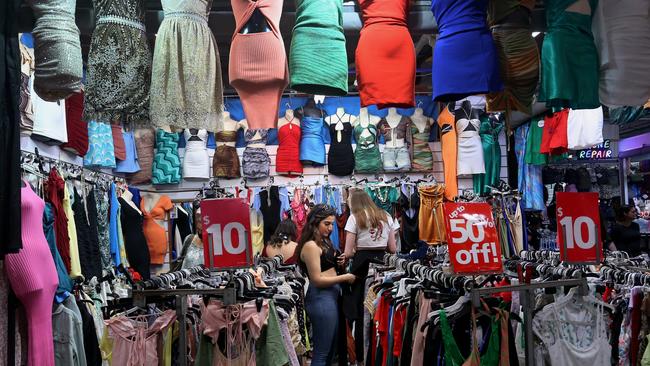
Chalmers said the Reserve Bank’s upgrading of the inflation peak to 8 per cent, with inflation to last longer – the bank said returning to the 2-3 per cent zone won’t occur until 2025 – meant “there’s more work to do on the fiscal side”. This meant more action on tax reform, spending restraint and trimming spending. Chalmers said he planned to “move simultaneously” on these three fronts.
He said the whole point of more transparent information, evidence-based policy and a better economic debate was to deliver “better decisions”. Chalmers, like Albanese, puts a priority on the method he brings to the job of Treasurer.
It all sounds terrific. Transparency, co-operation, orderly change. How good is this? It looks a major departure from past Labor eras under Gough Whitlam and Kevin Rudd. But the ultimate test is the result. What exactly is Labor’s understanding of reform? What exactly is the character of this government? Albanese seems extraordinarily relaxed for a PM under sustained policy pressures.
The immediate tests are whether Workplace Relations Minister Tony Burke can negotiate a compromise on multi-employer bargaining with the business lobbies or whether relations with business sinks into a downward spiral; whether the regulatory intervention in the gas market – with Chalmers making clear this goes to both supply and price – actually works short of a meltdown with the companies and damaging unintended consequences; whether Chalmers can put together a credible tightening of fiscal policy in the anti-inflation cause; whether Labor can deliver a coherent tax reform package while avoiding the lethal political backlash that has intimidated governments for so long on the tax front; and whether Labor can deliver productivity gains to underpin sustained wage rises, not just government directed gains for the low paid in the care sector.
Albanese governs in a time that demands boldness yet his majority is slim and the political obstacles to winning support for bold policy is immense. Still, the PM radiates the optimism of the newly empowered.
At the conference I had the following exchange with him:
Kelly: I’ve said in fact that I believe the Albanese government will either be a great Labor government or it will fail. There’s no third course, there’s no sneaking through. What’s your response to that diagnosis I offered?
Albanese: Back us in, Paul. Yeah, you’re half right.
Kelly: So where am I wrong?
Albanese: In your even thinking in such a pessimistic way that there is any alternative to have a visionary Labor government. We do want to be a reforming Labor government. We have not wasted a day in office. I hope you’ve noticed that. We have transformed not just our domestic policy. We’ve got a very different international agenda as well. If you don’t have a credible policy on climate, you don’t get in the door of Europe, the United States, Canada, New Zealand, let alone our Pacific neighbours. I don’t hang around in politics to occupy the space. I have remained here because I want to make a difference. And I’m determined to do so each and every day.”
Chalmers offered his strongest signal so far on two fronts – gas market intervention and strengthening the petroleum resource rent tax as an alternative to a windfall profits tax. With the budget predicting electricity prices to rise by 56 per cent and gas prices by more than 40 per cent over two years, Chalmers said: “I can’t see a situation where the types of outcomes forecast in the budget can endure.
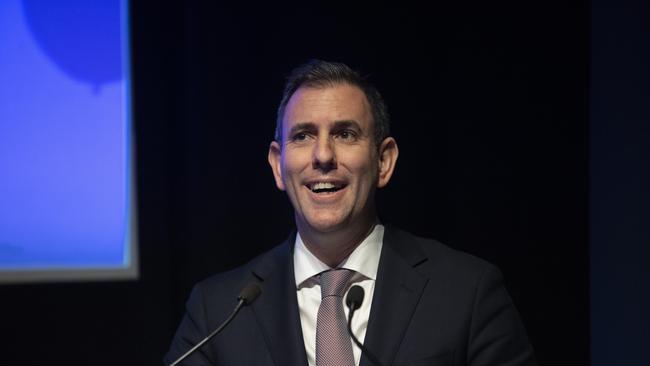
“As someone who is a relatively reluctant intervener in markets, for me and for my colleagues, I think we have crossed a threshold where everybody in our cabinet – and I think most people in the Australian community accept – that when this is driven by a war, when prices are expected to become so extraordinarily high that they risk strangling industries, then we need to do something about it.”
Chalmers said he was confident there was a viable form of action on the price side. Yet this raises a series of questions. Can the government control both supply and price? How viable is that? What is the Labor’s long-run view about the role of gas in the energy mix? Obviously, the government must ensure no breach of contracts, no sovereign risk.
Speaking at the conference, Productivity Commission chairman Michael Brennan warned against thinking Australia could protect itself against global energy prices for any extended time. Invoking economist Bob Gregory, Brennan said: “We have spent the better part of four decades in Australia on a policy path trying to remove efforts to shield domestic businesses from the world competition.” The reverse was “not a strong policy principle”.
Brennan said: “The grey area that people would point to is that there is a temporary or perception of a short-term price shock. I just caution that measures brought in to deal with temporary afflictions often have a habit of hanging around.”
Labor believes predicted energy prices are untenable for a functioning economy. The test is: will its intervention satisfy Albanese’s governing principles? Albanese said the government sees the energy challenge in short-run and long-run dimensions. The short-run demands intervention, the long-run demands a sustained commitment to renewables.
Labor’s most forceful declaration of this belief came this week from Climate Change and Energy Minister Chris Bowen, who said the current energy crisis was not caused by renewable energy in Australia or anywhere else. It was caused by the Ukraine war, Europe’s over-reliance on Russian gas and Australia’s decade of policy failure. “We cannot let, and the government will not let, the current crisis interrupt our drive towards cleaner, cheaper, renewable energy,” Bowen said. “This transition is even more important.”
He said Labor must be vigilant. There was “an almost daily drip feed of editorials and opinion pieces from the usual suspects, full of disinformation”. But the facts were “crystal-clear” – “even taking into account the need for transmission and storage to firm renewables, renewable energy is by far the cheapest form of energy available”.
Bowen said Labor would not be deterred by the latest efforts to deflect Australia from the renewable energy path – but the gulf is set to widen in a new Labor-Coalition conflict with Opposition Leader Peter Dutton warning that Labor is ideologically driven and seeks to phase out fossil fuels before the technology exists to make renewables reliable.
On the PRRT Chalmers said the tax was being reviewed by Treasury but said: “I think there is an appetite in the Australian community to see if that tax can operate more effectively.” Albanese branded the profits of the gas companies as “extraordinary”. Upgrading the PRRT would have support from the public, many economists and assist the budget.


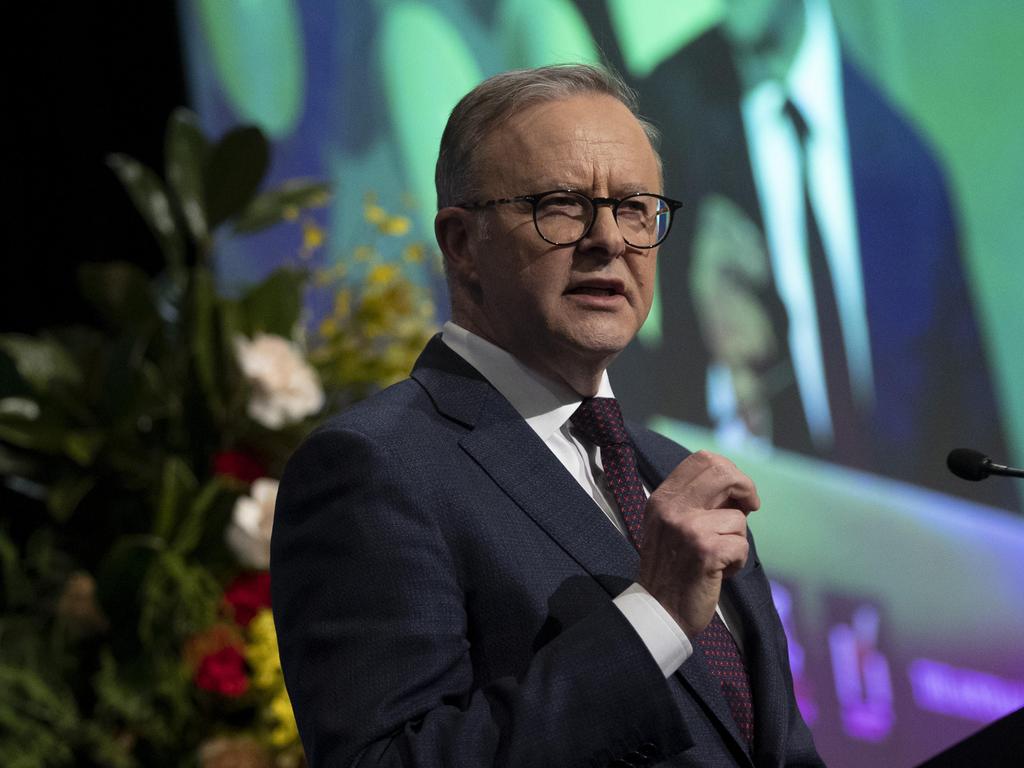
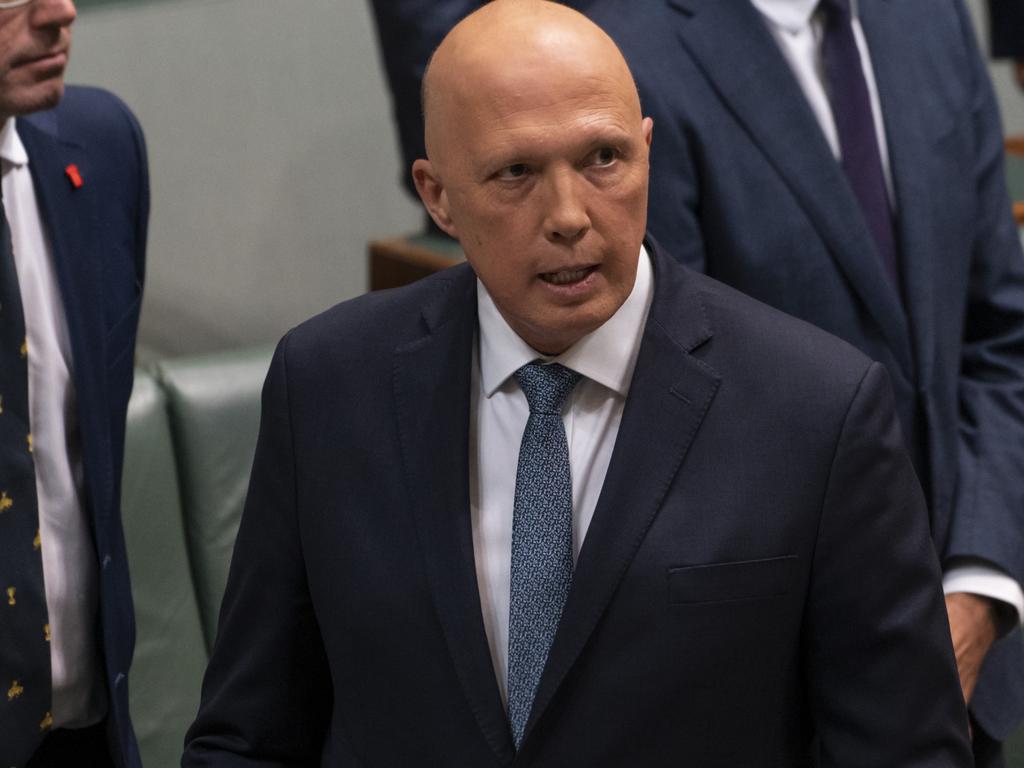
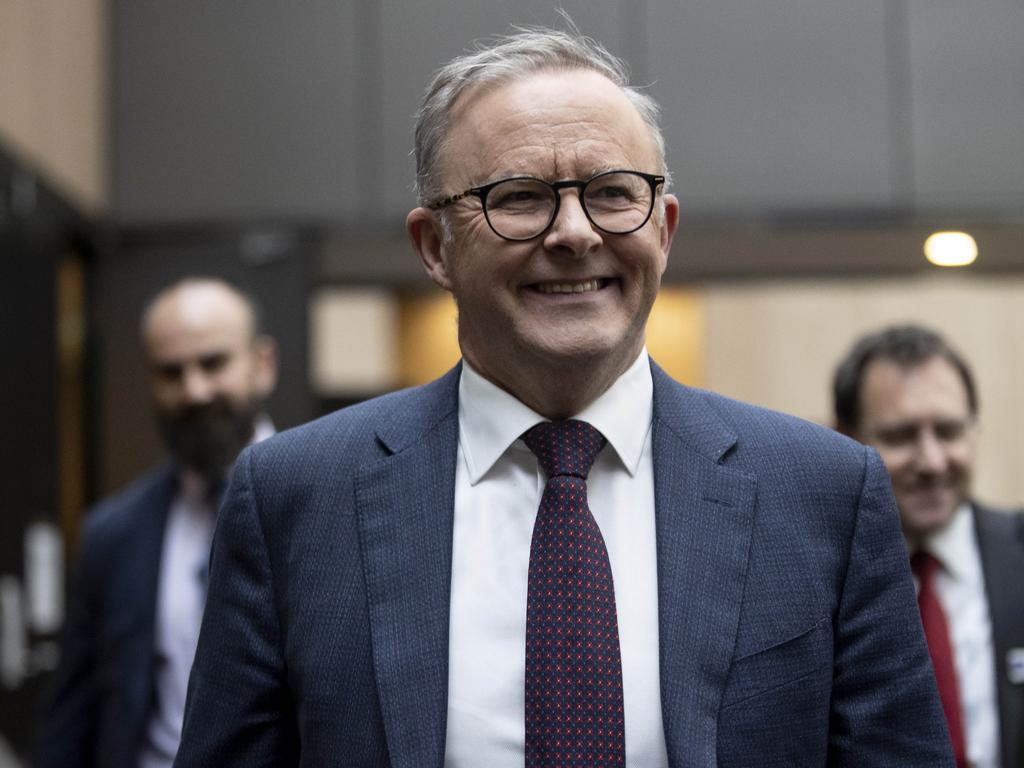
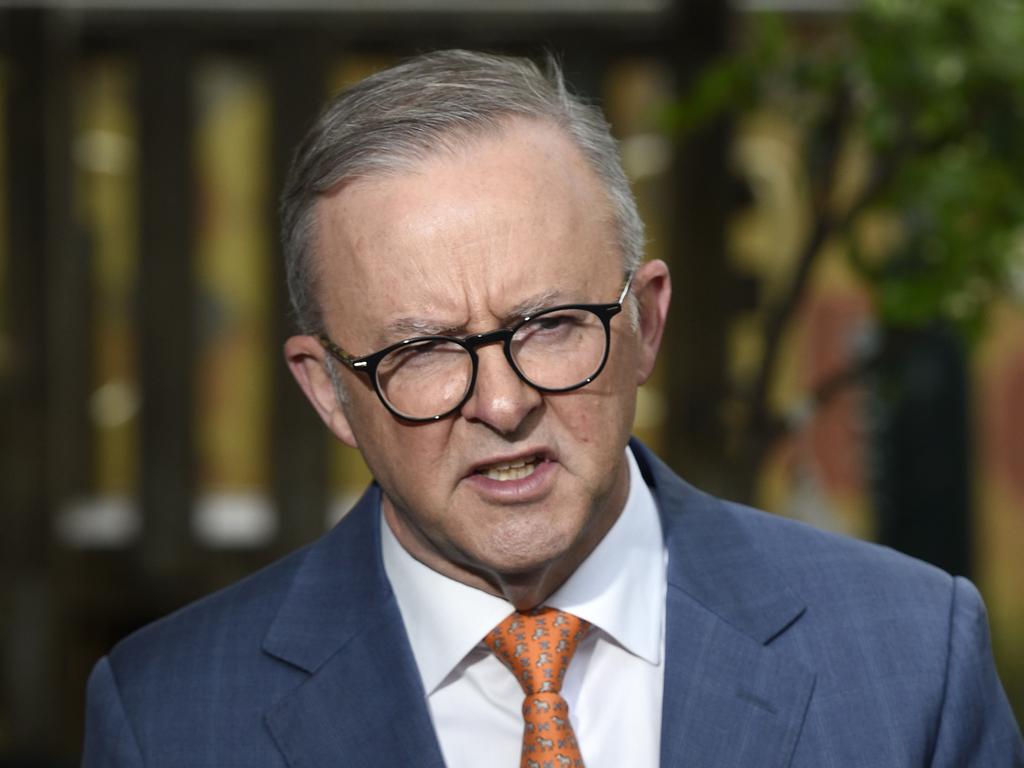


“The job of reform is a continuous one,” Anthony Albanese says. “And certainly not one that ends when you’ve ticked off your election commitments. Governments have to renew ideas.” His message – Labor wasn’t a small target at the election and won’t be a small target in office.